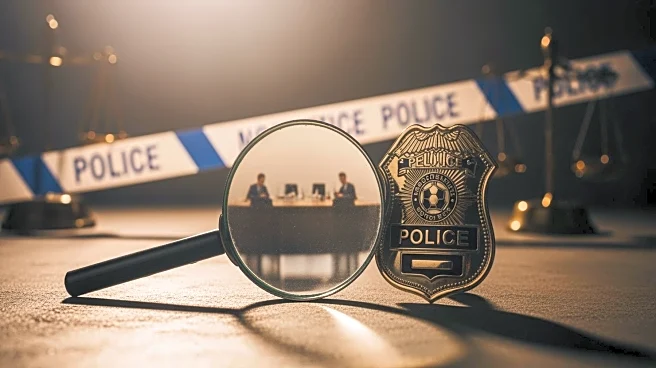What's Happening?
Police and detectives play a crucial role in law enforcement, with duties ranging from patrolling to responding to emergencies. They must possess good judgment, communication skills, and empathy to effectively
serve their communities. The occupation can be physically demanding and stressful, requiring officers to be alert and ready to react throughout their shifts. Despite the challenges, many officers find the work rewarding as they help maintain public safety and order.
Why It's Important?
The occupational outlook for police and detectives is significant for understanding the demands and expectations of law enforcement careers. The skills and qualities required for effective policing are essential for ensuring public trust and safety. Addressing the challenges faced by police officers, including stress and physical demands, is crucial for supporting their well-being and performance. The role of police and detectives is central to maintaining social stability and enforcing laws, impacting community relations and public policy.
What's Next?
Efforts to support police officers may focus on enhancing training and resources to address the physical and mental demands of the job. Policymakers and law enforcement agencies might explore ways to improve recruitment and retention, ensuring a diverse and skilled workforce. Future discussions could address the challenges of policing, including community relations and stress management, to enhance effectiveness and public trust.
Beyond the Headlines
The occupational outlook for police and detectives highlights broader implications for law enforcement and community relations. The emphasis on empathy and communication reflects the need for a holistic approach to policing that prioritizes community engagement and trust. Long-term shifts in policing may involve redefining the role of officers in community safety and crime prevention, fostering a more collaborative and inclusive approach to public safety.









